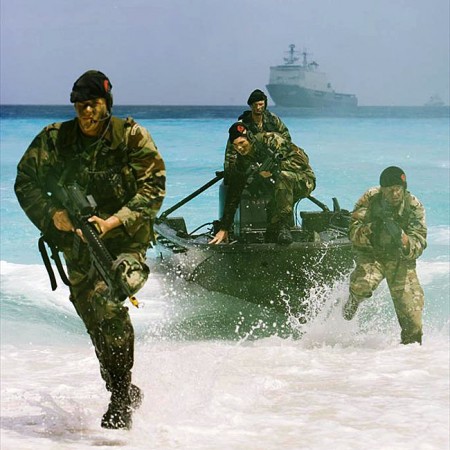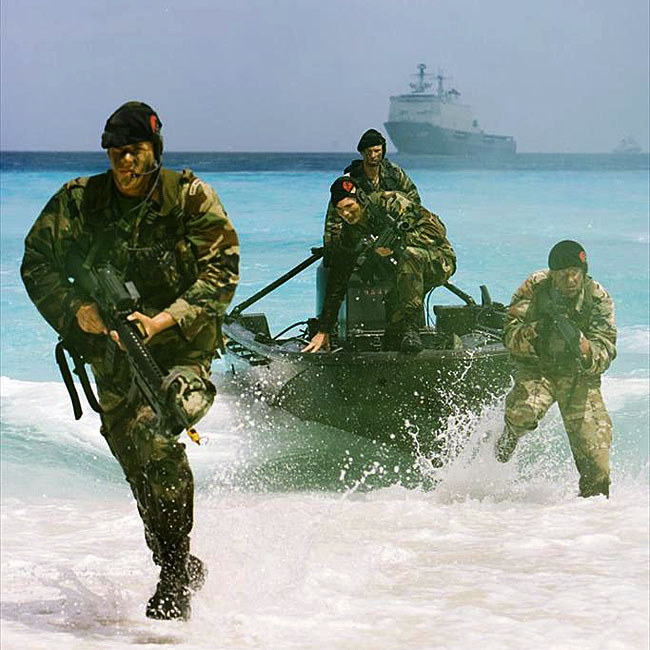European battlegroups: missing in (no) action!

(BRUXELLES2) The European tactical groups (GT1500) - also called battlegroups - seem doomed to stay in the garage... Once again! Despite a discussion at the COPS, the Political and Security Committee, there does not seem to be any question, for the moment, of a take-off of European troops for the Central African Republic. Asked by several journalists including B2, Catherine Ashton's spokesperson remained very evasive about this possibility. " There is no concrete proposal as such on the table. These are ideas that are discussed. »
You're obsessed with battlegroups
« We are studying options to help the international community" indicated the spokesperson, judging that there is not only the option of sending a battlegroup which can be envisaged. " You're obsessed with battlegroups he blurted out. Corn " our response is not limited to military aspects alone ". " The European approach is a global approach with funding to help set up the African mission (read: 50 million euros for MISCA) And " humanitarian aid ».
A unanimous decision
« Everything remains open for now. Everything is always on the table he assured, not hiding however that there was little chance of having a decision. " Any decision on defense policy options is based on a unanimous decision. That's why we're continuing the discussion. »
Comment: everyone passes the buck
In fact, between the United Kingdom and the Netherlands, reluctant to send troops on the ground, under the European flag, on principle or out of pragmatism, and Greeks, Romanians and Bulgarians who are penniless, Europe prefers the strategy of the checks to that of the use of force... It must be said that Paris did - it seems - not really ask for the intervention of a battlegroup (tactical group). At least, that's what they say in Brussels. Paris refutes this argument but has effectively asked the European capitals for various logistical means, knowing from the outset that the option of the battlegroup seemed to be poorly supported by both the EEAS and the member states on duty.
The "hard" option is not popular
European specialists have well prepared, if not a project, at least various options. But at the level of the ambassadors, it does not seem that the most "hard" option, sending a battlegroup, is favored at the moment. This option was not really supported energetically on the European side, knowing that the refusal was at the end... We would rather move towards a second level intervention: to help disarmament, the reintegration of the rebels, or restructure the Central African army or security forces, once the acute crisis is over, a bit like what was done for EUTM Somalia or EUTM Mali.
A Europe at gunpoint
In fact, if there are a number of "good" reasons which oppose or delay the sending of a European battlegroup, one cannot help but be very perplexed. On the Central African Republic, as for Mali, there is a certain international consensus and an African will. The risk of seeing the country become a failed state and sink into civil, ethnic, religious, inextricable violence is palpable if not proven. There is a United Nations resolution authorizing the use of force. All the parameters are therefore met. But, despite everything, Europe remains at gunpoint.
A bad sign
Two weeks before a summit devoted to Defence, Europe is sending the wrong signal, a sign of extreme weakness. A "power", capable of discussing, financing, fighting in diplomatic or commercial corridors, of course. But unable, when the time comes, to come to the aid of a country or a population that can no longer take it, to make a difference, by stabilizing a country. The "strategic value" of the battlegroup, of the European rapid reaction force, so much vaunted in ministerial meetings, and in which each State prides itself on its participation, is on the way to shrinking, like a speculative bubble. While Europe has (theoretically) nearly one and a half million soldiers under the national flags, it will be necessary for a moment to ask the question of what is the profitability of this investment... if we are unable to send 1500 men in support of an international operation (UN, African Union) in which one of its Member States is participating...


Comments closed.